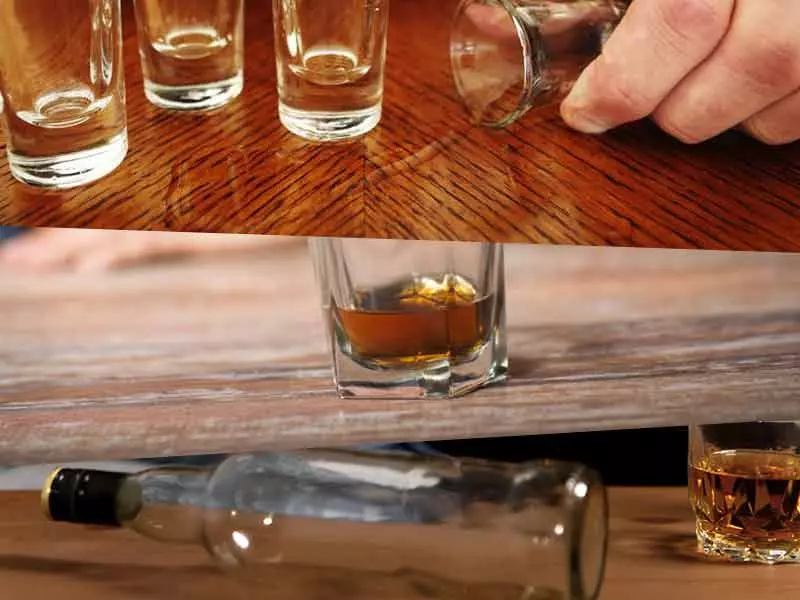Naltrexone FAQ
- Why use naltrexone?
- Can I totally recover from alcoholism by naltrexone only?
- Why naltrexone is effective for treatment alcoholism?
- How long should I take naltrexone to have the primary positive effect?
- What is the duration of a minimal course of naltrexone?
- What are the contraindications for taking naltrexone?
- Please list the side effects of naltrexone.
- Will I feel pain or have other troubles if I drink while on naltrexone?
- Does naltrexone inhibit me from taking other medications?
- What should I do if I need an operation or pain medication?
- Is it dangerous to suddenly cancel naltrexone?

1. Why use naltrexone?
Originally, naltrexone was known as a medication for treating opioid drugs dependence (e.g. morphine, heroin or codeine). Later, FDA (Food and Drug Administration in USA) approved its use in the complex treatment of alcoholism. Its effectiveness is based on competing with opioids for receptors in the central nervous system. Studies have shown that patients who were given naltrexone had twice the chances to remain abstinent compared to patients who received placebo. Also, naltrexone is used as active substance of weight-loss medication.
!banner!
2. Can I totally recover from alcoholism by naltrexone only?
While effective, naltrexone is not sufficient in itself for treating alcoholism. Naltrexone is only a component in complex therapy including, as essential part, psychological and social help. Studies have demonstrated its effectiveness only in combination with professional psychotherapy and participation in self-help groups.
3. Why naltrexone is effective for treatment alcoholism?
The precise mechanism of action for naltrexone is still unknown. However, researches have shown that its effect can be divided into three groups. First, naltrexone reduces craving for drinking. Second, it’s much easier to stay abstinent while using naltrexone. And third, naltrexone helps a patient stop drinking if he or she slipped into a relapse of drink. At the same time, naltrexone does not reduce such effect of alcohol as bad coordination and judgement. It cannot make you sober.
4. How long should I take naltrexone to have the primary positive effect?
Naltrexone starts working and helps overcome the abstinence syndrome shortly after taking the first tablet.
5. What is the duration of a minimal course of naltrexone?
Provided that naltrexone is well tolerated, the recommended duration of the initial course of treatment is three months. The need for further treatment should be evaluated by your doctor on the basis of degree of improvement when the patient's goal is to stop drinking altogether.
6. What are the contraindications for taking naltrexone?
Contraindications to taking naltrexone are pregnancy and/or severe liver or kidney problems. Keep in mind that the period of abstinence from alcohol before starting a course of naltrexone should be not less than five days. For patients dependent from opioid drugs like heroin or morphine the period of abstinence from them should be at least seven days. Naltrexone in itself is not addicting, and it has no psychological effects.
7. Please list the side effects of naltrexone.
Side effects of naltrexone (or revia) are mild, short in duration and affect a small minority of patients (2 to 10%). Sometimes people experience the following: nausea, headache, dizziness, fatigue, insomnia, anxiety, and sleepiness. The only serious possibility is a toxic effect on the liver when patients have problems with the health of it. Prior to the onset of treatment, blood tests of liver function should be passed. Retesting is recommended at monthly intervals.
More information about possible side effects you can find here.
8. Will I feel pain or have other troubles if I drink while on naltrexone?
Naltrexone does not make you feel sick if you drink; it even can reduce the feeling of intoxication.
9. Does naltrexone inhibit me from taking other medications?
Notice that naltrexone blocks only opioid-based pain killers. Any other non-narcotic pain relievers can be used in parallel with naltrexone. Such analgesics as aspirin, acetaminophen, ibuprofen and allergy medications are also allowed to use together with naltrexone. Be sure to inform your doctor about all drugs you are currently taking. If some of them affect your liver, the doctor may reduce the dose of naltrexone.
10. What should I do if I need an operation or pain medication?
Important! If you are going to have surgery where opioid pain medications are necessary, stop taking naltrexone at least 72 hours beforehand.
11. Is it dangerous to suddenly cancel naltrexone?
Taking naltrexone can be stopped at any moment without any withdrawal symptoms. Craving to alcohol does not return when naltrexone is cancelled.